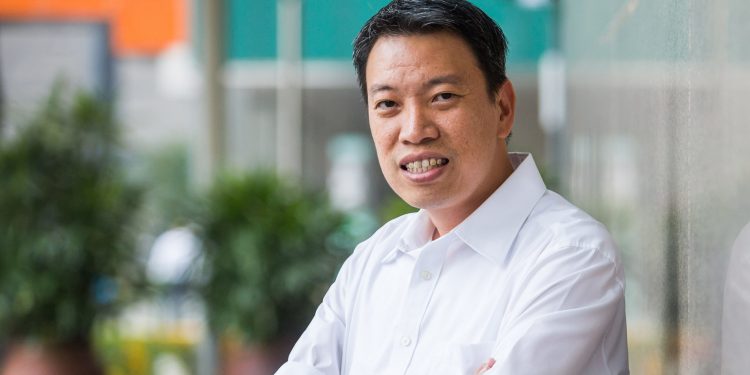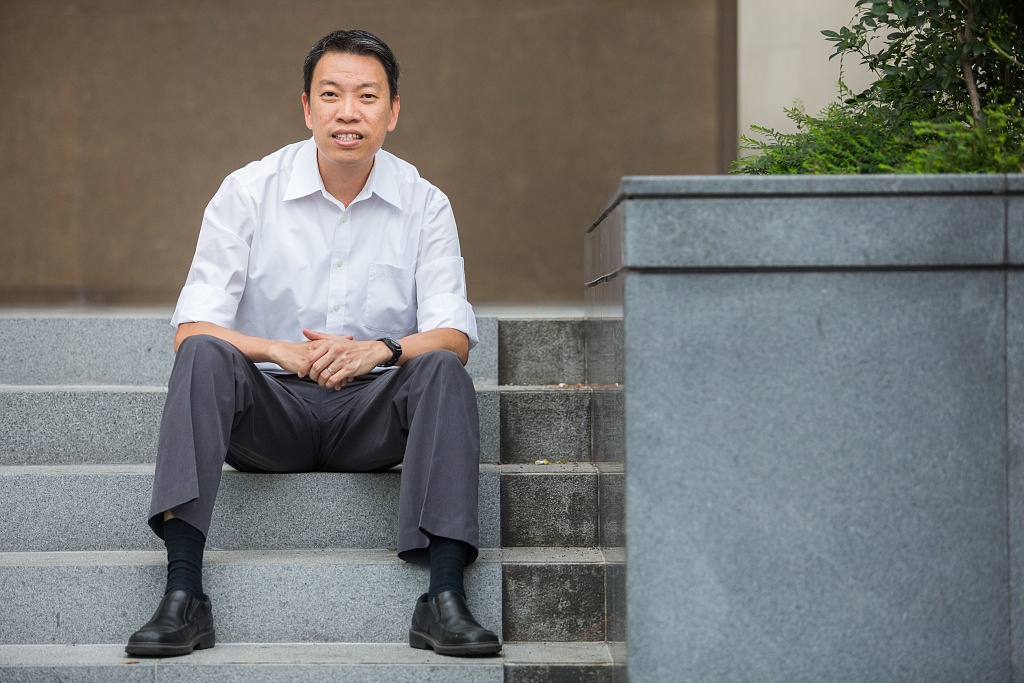It is 8 am on a Thursday morning and Melvin Yong has a big, bright smile for me. I am here, at NTUC Centre located at One Marina Boulevard to hear from Melvin on how the past 3 months with NTUC has been. With him being relatively new to the Labour Movement family having moved over from the Singapore Police Force (SPF), surely the transition must have been challenging.
How then, the smile?
You joined NTUC in September last year. How has the past 3 months been like for you?
Over the past 3 months at NTUC, I’ve visited a number of unions to understand the current issues concerning their respective workers. Getting to meet them, hear from them and even speak with them has given me a broader view and perspective of the work undertaken by our union leaders and industrial relations officers on a daily basis. To compare it with what I used to do previously with SPF, I would say that both involve working with multiple organisations and different people, finding a common goal and working together to achieve that. But with NTUC, it’s not so much about enforcing a certain set of laws, but rather cultivating a shared ideology and understanding, with a view of the common good at the forefront.
That sounds very philosophical. Do you mean to say that Tripartism is just that – a philosophy?
Definitely not. For instance, during the economic crisis of 2009, we saw how the tripartite partners came together and worked with employers to cut costs to save jobs. This was in stark contrast to what was happening in other parts of the world where companies were cutting jobs to save costs. And even before 2009, dating back to the times of our forefathers, Tripartism played a crucial role in the industrial peace and harmony that we enjoy, even up till today.
How does Tripartism factor in our present day context, when all is largely well and good?
Well, first of all – we have to remember that Singapore is very small. We have no natural resources, nor do we have a big domestic market. But what we have is people. Our people are our most valuable asset – people who are able to see things from a broader perspective, who can work together – sometimes sacrificing their individual interests – for the future of our nation.
As many are well aware, the global world around us is changing. Singapore is undergoing a period of economic restructuring. Against this backdrop of uncertainty, many of our workers are worried – will they still have their jobs tomorrow? If they do, is there job security? And if they don’t, what exactly does the future hold for them? On the flip side, our companies are also feeling the effects of shorter-term cyclical and longer-term structural changes. At the same time, the Government is concerned with the sustainability of both economic and wage growth.
This is why we need to continually strengthen the spirit of Tripartism, so that different parties, with different interests and perspectives can come together in mutual trust, and through a “give and take” understanding, take collective responsibility and action to maintain and protect the common good. All three parties need to be strong and to be aligned.
What role do you see Tripartism play as we move towards SG100?
Going forward, Tripartism will only become more and more important in light of an open and volatile economy. Today, the businesses may be here, but what’s stopping them from moving away? If tomorrow other markets are able to have a leg up on us – in terms of quality of skills, workers or costs – what’s stopping our businesses from leaving our shores? It is therefore imperative for us to do our best to create a conducive environment for businesses such that businesses that are here already will want to stay, and businesses that are not, will want to invest here. And this is where I think the future of Tripartism lies.
This is interesting. Could you explain what the future of Tripartism entails?
Essentially, I believe that for Tripartism to succeed, it has to be pervasive. At the national level, we need to continue to strengthen Tripartism to be more robust so as to withstand pressures brought about by the global economic climate. But beyond that, Tripartism should also be cascaded down to the sectoral level, where it can address and benefit the specific needs of employers and workers in each industry.
Since January this year, I took on the role of Deputy Executive Secretary with the United Workers of Electronics & Electrical Industries (UWEEI). I can tell you that this industry is more affected by economic fluctuations, so there is a constant need to watch the figures and also prepare our workers in the industry to be adaptable and future-ready. There is also greater impetus – especially in the electronics industry, with the introduction of technology – to help our workers upskill today so they can take on the jobs of tomorrow. So this is one area I feel Tripartite engagement and cooperation would be key.
On the other hand, if you look at the public transport industry, it is undergoing a major restructuring with the introduction of two new foreign bus operators. The Public Transport Tripartite Committee (PTTC) has worked hard to ensure that affected bus workers are not short-changed in the transition to the new government bus contracting model. The challenge is to find more Singaporeans to take on the new jobs created. In February, I will be taking over as Executive Secretary of the National Transport Workers’ Union and I already have my work cut out for me. But I’m confident that our Tripartite partnership will ensure a smooth transition for our bus operators as well as bus workers.
With that, it is time for me to conclude our interview session. Though short, I’ve come away with greater insight into where the country stands, where we hope to be, and most importantly, one man’s proposal of how we should get there. And perhaps it is this spirit of always doing together and doing better that we ought to keep going. More importantly, I now have renewed confidence that with strong Tripartism, our tiny red dot can continue to shine for many more years to come.
No wonder Melvin has something to smile about.


